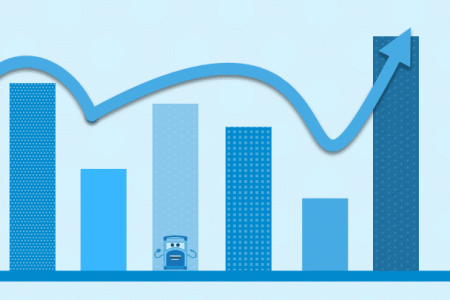As long as we can remember, word-of-mouth marketing has had an influence on people’s buying decisions.
The only thing that has changed is how people do it. But regardless of how you go about it, everyday decisions, from what doctor or dentist you’ll see, to what kind of car you buy, even what you eat is based on the recommendations around you.
Whether you come to your decisions based on reading online reviews, hearing a restaurant mentioned by your favorite blogger, or hearing a friend squeal with joy over their new car. You are likely to be influenced by your decision one way or another. Here’s an article for word-of-mouth marketing examples.
People rely on their surrounding network more often than they realize. Brands are spending more effort with boosting acquisition through organic channels like guest posting, having conversations with thought leaders and using social media more than ever. And this is exactly why wom marketing is such an influential tool in marketing.
Recap of what word of mouth is
In today’s digital world, building trust is the forerunner of creating an impactful brand. This trust is presented through word-of-mouth interactions between people, not the brand to people. Instead, it’s the interaction of a brand’s current consumers telling their friends and followers about it.
Word of mouth comes from the brand ambassadors, influencers, and real users of a product who have a real impact on getting others to use said product.
Here’s what we know about WOM marketing
If you do a quick search on WOM marketing, you’d likely see tons of results. You’d probably also see a lot of research. Here’s how we know word of mouth marketing is the bee’s knees of marketing.
Why word of mouth is powerful
Just to reiterate how powerful word of mouth is you’ll see that many people rely on it as a way to learn about new products, share information, and of course, make things go viral.
- 72% of people get news from friends and family, making word of mouth the most popular channel for sharing. (Pew Research Center)
- 61% have recommended a local business to someone they know by word of mouth (BrightLocal)
- Building an online community is most important to brand awareness and word of mouth referrals, with average rankings of 8.87 and 8.52 on a 10 point scale, according to marketers. (Referral Rock)
- The most valued source of information is from personal experience. (Talk Triggers – Chatter Matters)
- 72% of consumers will use a local business if it has a 3-star rating. (BrightLocal)
- 83% of Americans say that word-of-mouth recommendations from friends or family members make them more likely to purchase that product or service. (Talk Triggers – Chatter Matters)
- Marketers rated the quality of a word of mouth lead to be 4.28 on the 5 point scale. (Referral Rock)
Proof that word of mouth works
We’ve seen why word of mouth is awesome. Now let’s look at some statistics that prove it works. We think you’ll be pleasantly surprised but what you see.
- 74% of consumers identify word of mouth as a key influencer in their purchasing decision. (Ogilvy Cannes)
- Word-of-mouth emerged as the leading purchase influencer (top-2 box score) in each category among Millennials. (Marketing Charts)
- 41% of people trust a recommendation from someone they know more than a social media recommendation. (Talk Triggers – Chatter Matters)
- Consumers discuss specific brands casually 90x per week. (HubSpot)
- 63% of social media users believe consumer ratings are #1. (HubSpot)
- Among Boomers, word of mouth is the top influencer for financial products and big-ticket purchases. (Marketing Charts)
- 71% of people recommend a great experience. (Talk Triggers – Chatter Matters)
- 49% of marketers believe that 20-40% of their leads come from referrals. (Referral Rock)
Who trusts word of mouth
We know you understand that word of mouth works. So let’s reiterate why it works. These word of mouth statistics have to do with it’s trust-factor.
- 88% of people trust online reviews written by other consumers as much as they trust recommendations from personal contacts. (BrightLocal)
- “92% of global consumers trust UGC and WOM more than advertising. (Jay Baer)
- 68% of people trust online opinions from other consumers, which places online opinions as the third most trusted source of product information. (Nielsen)
- 72% of consumers say reading positive customer reviews increase their trust in a business; it takes, on average, 2-6 reviews to get 56% of them to this point. (BrightLocal)
- 92% of users will use a local business if it has a 4-star rating. (BrightLocal)
- 61% of IT buyers reports that colleague recommendations are the most important factor when making a purchase decision. (BtoB Magazine)
- When choosing a restaurant, Millennials are 99% more likely to trust a social media recommendation over other groups. (Talk Triggers – Chatter Matters)
- Millenials are 115% more influenced by word of mouth than traditional advertising. (Talk Triggers – Chatter Matters)
Results from word of mouth
Time to put the cherry on top. Let’s dive into some word of mouth results, a.k.a., the reason people plan their marketing campaigns around it.
- 92% of B2B buyers are more likely to purchase after reading a trusted review (G2.com)
- 57% of consumers will visit a local business website after reading a positive review (BrightLocal)
- 81% or marketers said that exceptional service was their method for promoting of mouth to happen. (Referral Rock)
- 72% of consumers will take some sort of action after reading a positive review
- When planning a wedding, word of mouth from friends and family is relied on 331% more than regular advertising. (Talk Triggers – Chatter Matters)
- 60% of marketers track their word-of-mouth referrals by simply asking how they found out about their business. (Referral Rock)
- 92% of people trust recommendations from friends over other sources. (Nielsen)
Now you know
As you can see, word of mouth plays a huge role in increasing your brand’s trust, and reputation. Though it’s not a new phenomenon, it’s important to realize that this happens because people trust their friend’s point of view, experience, and thoughts of your brand over the thoughts of the business itself.
It’s much easier, not to mention more authentic to here someone you know say something is the ‘best’, over the business proclaiming or stating it’s the best.
This is exactly why many businesses have been learning more towards building channels for word of mouth to occur. They are implementing more types of rewards programs like referral and influencer programs to promote word of mouth to occur. If you want to learn more on how to kick start your word-of-mouth marketing, there’s the link. Or maybe you want to know more about how you can increase your wom efforts – either way, we have you covered.



